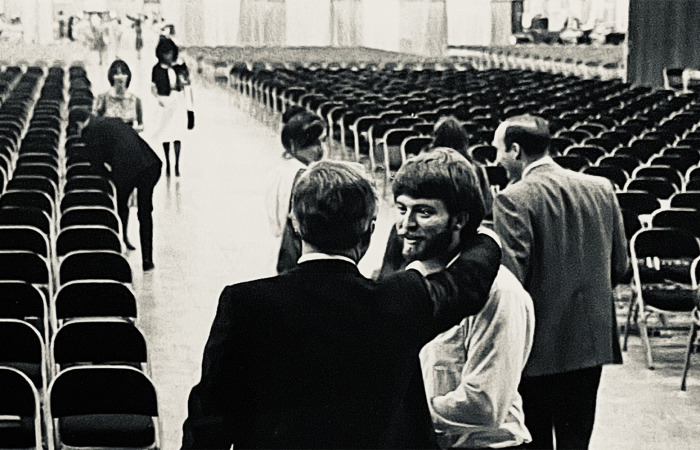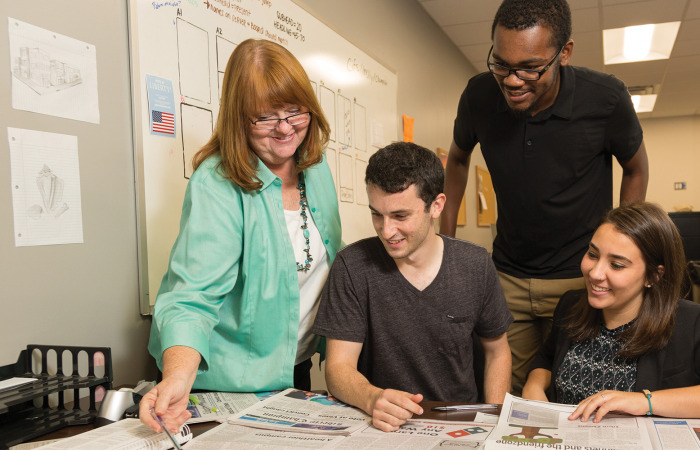Preserving Human Worth and Moral Compass in the AI Era
All around us, technology is evolving at breakneck speed — yesterday’s science fiction has become today’s daily routine, and today’s impossibilities will be tomorrow’s conveniences. In the span of only 70 years, humanity has progressed from room-sized computers performing basic arithmetic to artificial intelligence systems that can diagnose diseases, compose text, and process vast amounts of information within seconds. But anyone who’s paying attention sees that AI isn’t merely a shiny new toy; it’s a portent of paradigm shifts to come.
For Christians, there are at least two challenges presented by AI: preserving human worth and dignity in the face of machines that can mimic and sometimes exceed human capacities and guarding Christian moral clarity in a world increasingly guided by algorithmic decision-making.
The foundation for human worth is found in Scripture, where the very first book tells us that God created humans in His own image and tasked us with taking dominion of the created order. But as artificial intelligence increasingly assumes tasks once reserved for human endeavor, the temptation arises to conflate human worth and productivity. Our worth stems not from our output or efficiency but from being image-bearers of God — a privilege and a birthright which AI can never attain, no matter how advanced it becomes. Now more than ever, Christians have a responsibility to enunciate this core distinction. We must declare that human beings reflect a divine worth not subject to technological revision. This conviction compels us to advocate for AI applications that serve human thriving rather than undermine it. When innovative AI tools tempt us to elevate function above essence, the historic Christian vision of the unparalleled worth of humanity stands as a vital counterbalance.
AI’s rapid advancement also requires Christians to defend moral clarity in a future where algorithms — and the humans behind them — will seek to arbitrate our understanding of right and wrong. These supposedly objective algorithms are never truly neutral precisely because humans cannot be neutral. AI systems are not abstract mechanisms of pure logic; they are frameworks built by moral creatures who encode them with their own biases, assumptions, and priorities. Because AI training requires massive datasets, specific quality metrics, and carefully curated variety in training examples, the “moral parameters” of any AI system are actually just weighted connections or probability distributions in a neural network. The AI approach to ethical decision-making remains purely computational, lacking the essential qualities of moral deliberation that uniquely characterize human ethical reasoning. Even quantum computing cannot resolve these limitations. Christians must refuse to accept the myth of algorithmic impartiality. We must bring biblical ethics into the lab, the boardroom, and the legislative chamber, insisting that technology’s moral compass be aligned with natural law and God’s revealed Word.
It is vitally important that we learn to evaluate AI not just as users or beneficiaries but as thoughtful and discerning Christians in a rapidly changing world. We need knowledge and understanding of these AI technologies, but we also need wisdom to navigate and influence them ethically. The Church must equip believers to engage thoughtfully with developers, policymakers, and educators, ensuring that AI’s growth respects human worth and moral truth. Similarly, Christian universities and seminaries are uniquely positioned to forge theological wisdom with technical understanding. At Liberty University, professors and administrators are developing AI initiatives and programs designed to integrate sound theology, moral discernment, and hands-on technical education, all of which will serve to shape future leaders who apply biblical principles and sophisticated understanding in every vocational field.
Artificial Intelligence is a world-historic phenomenon that compels Christians to uphold our deepest ethical and moral convictions as we engage its possibilities. When believers approach AI with intellectual rigor and spiritual discernment, we provide the much-needed principled framework that should shape its growth and application. The time for engagement is now. Every moment of hesitation creates space for ideologies hostile to biblical truth to shape AI’s development. If Christians choose passivity over proactivity, the future of AI will be determined by those who see human worth as negotiable and moral truth as malleable. By seeking to steward AI wisely, we can ensure its promise reflects our God-given worth and aligns with His transcendent moral order.
 Dr. Alexander Mason is the Associate Dean of Residential Programs for the College of Arts & Sciences. His research interests span political ethics, technological ethics, biomedical ethics, and 16th century history. He developed and teaches a course on the Ethics of Artificial Intelligence and is a 2024 recipient of the President’s Award for Excellence in Teaching.
Dr. Alexander Mason is the Associate Dean of Residential Programs for the College of Arts & Sciences. His research interests span political ethics, technological ethics, biomedical ethics, and 16th century history. He developed and teaches a course on the Ethics of Artificial Intelligence and is a 2024 recipient of the President’s Award for Excellence in Teaching.




